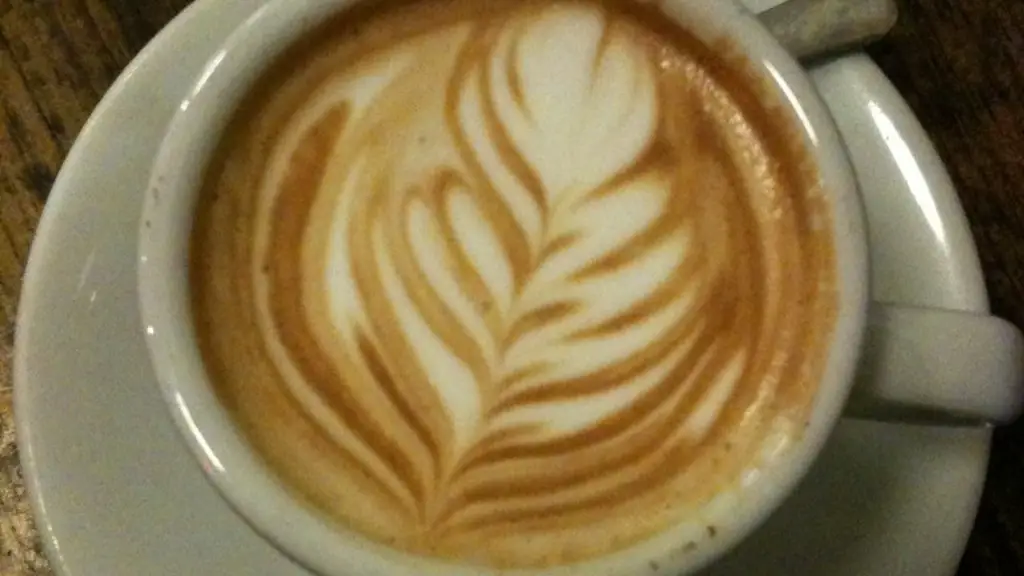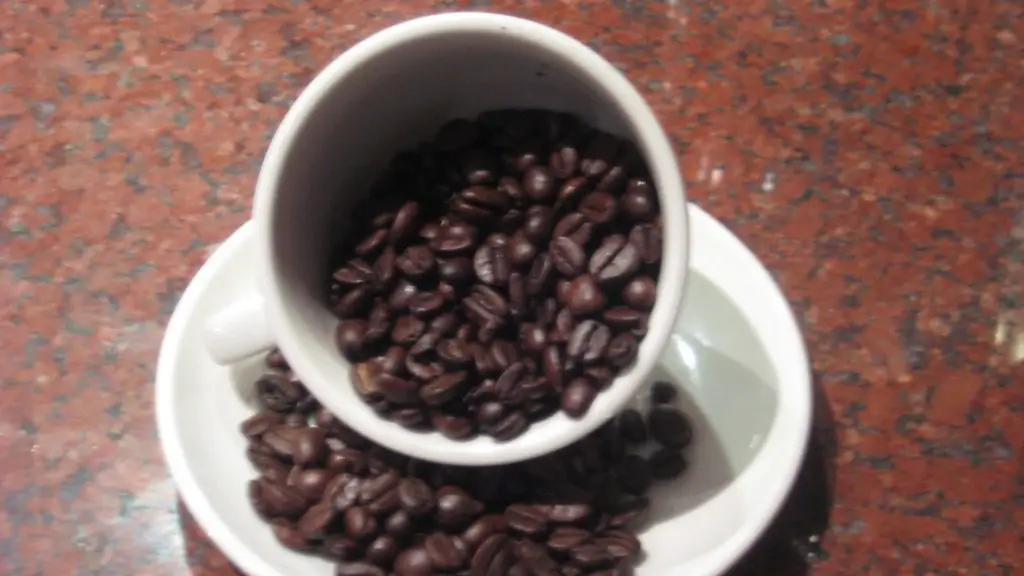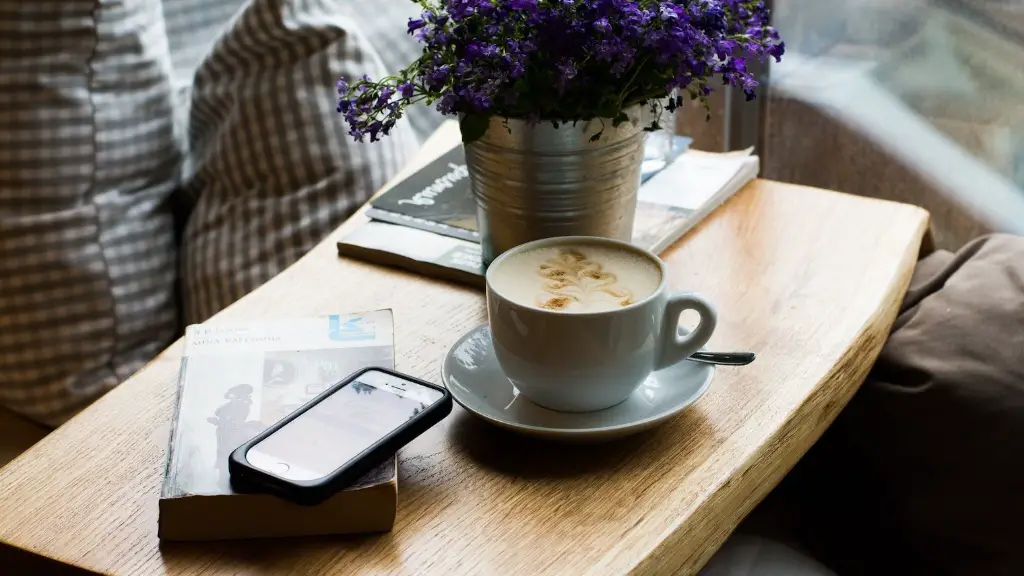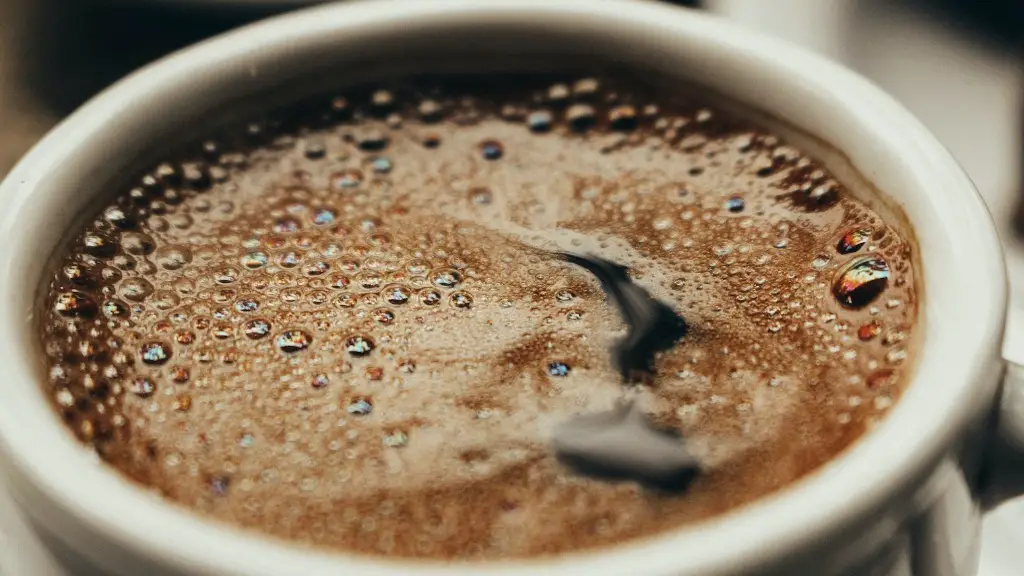Even among the millions of coffee devotees that exist around the world, it’s still a contentious question: do people mostly drink black coffee, or with cream and sugar? Many proponents of black coffee claim that it’s the purest and most simple way to enjoy the beverage, while others like having the sweetness and texture that comes from adding other elements. But just what percentage of coffee drinkers prefer it black?
There’s no easy answer. Most surveys don’t differentiate between coffee with additives and black coffee, so it’s almost impossible to give a precise number. However, certain trends and data can be identified.
Many surveys have found that black coffee is more popular among the older population. This may be because it was more common in their younger years, and tastes for coffee can be slow to change. A survey conducted by MOHO Analytics found that 45% of people aged 50 or over preferred strong, dark-roast coffee without cream or sugar.
On the other hand, younger coffee-drinkers have been found to have a stronger preference for flavored drinks. A 2017 survey conducted by the National Coffee Association found that 25% of those aged 18-24 most often drink flavoured lattes and cappuccinos—barely half of the number of older respondents that identified as black coffee-drinkers.
There’s also likely to be a difference between genders when it comes to black coffee. For example, a 2018 survey conducted by Peets Coffee found that men were twice as likely as women to take their coffee strong and black. Meanwhile, an International Journal of Coffee Science study from 2019 indicates that women are more likely to add sugar and cream to their black coffee than men.
All of this information provides us a bit of a glimpse into what percentage of coffee drinkers take their coffee black, but it doesn’t encompass the complexity of personal preference. National trends are useful in terms of understanding how the market is changing, but everyone’s individual experience is just as important.
Coffee Trends in Different Cultures
In different parts of the world, coffee trends range from traditional Italian espresso shots to Vietnamese filtered brews. Each culture has its own unique take on coffee, and there’s also variations in the kinds of people who enjoy it.
In Italy, for instance, coffee is often brewed shortly before drinking and consumed without any cream or sugar. It’s a popular afternoon pick-me-up, and some coffee drinkers even have a “ristretto” (a shot of coffee with less water than a regular espresso shot).
In Japan, coffee is more often than not enjoyed black. This can be attributed to the beverage’s popularity as an after-dinner refreshment for businessmen. The Japanese LOVEBLK brand also offers black coffee, in single serving capsules, specially designed for those who appreciate the bolder taste.
In France, coffee is traditionally served with cream and sugar. It’s a popular mid-morning or mid-afternoon treat, and coffee houses have become a cultural staple. The drink of choice is typically un café noir – coffee with cream and sugar.
In the U.S., black coffee is more popular in the southern states, especially Texas and Louisiana. It’s typically served with added cream and sugar on the side so that the drinker can adjust to their own taste. This does make it a bit easier for those who want to transition to drinking black coffee by gradually reducing the sugar and cream.
Effects of Caffeine On Your Brain
It’s no secret that caffeine gives you an energy boost, but how exactly does it work? When caffeine enters the bloodstream, it triggers a variety of reactions in the brain. It increases dopamine, which boosts your alertness and concentration. It also releases adrenaline, which causes a burst of energy.
These effects can improve energy levels and make it easier to focus on work or studies. However, long-term and excessive consumption of caffeine can result in negative side effects, such as anxiety and insomnia. Consulting a doctor or nutritionist is recommended when considering adding or reducing caffeine intake.
Decaf coffee is also an alternative for those who want to reap the mental benefits of coffee without having to worry about the negative side effects. Despite the name, decaffeinated coffee does still contain a small amount of caffeine and can present some of the same positive effects as regular coffee.
Many Benefits of Drinking Black Coffee
Besides from the obvious benefit of being free from extra calories, black coffee has many other advantages that can be enjoyed. The presence of antioxidants helps reduce the risk of many chronic diseases, and some people claim that it can even help reduce stress and improve brain function.
One scientific trial published in the International Journal of Molecular Sciences drew some remarkable results. According to the study, regular consumption of black coffee can increase the production of antidepressants in the brain, causing long-term effects on mental health.
What’s more, many athletes have attested to the benefits of black coffee, claiming that it helps improve physical performance. Coffee can give you quick energy to compete in athletic competitions, while one study in the Journal of Human Kinetics even presented evidence that running on an empty stomach after consuming black coffee can lead to better performance.
Finally, one of the biggest advantages of black coffee is that it’s a cheap and easy way to enjoy the benefits of caffeine. Aside from the cost of the beans, hardly any extra ingredients are needed, and it can be made at home with little effort. Black coffee is also the preferred choice of many gourmet coffee drinkers, who often opt for cups of ‘straight up’ espresso or macchiato.
Is Black Coffee Better for You than Other Types?
The answer to this question largely depends on individual health needs and preferences. Generally speaking, some types of black coffee can be better for the body than others. For example, organic coffee and cold brew coffees tend to be lower in calories and have higher levels of antioxidants.
However, it’s still important to be aware of any health risks that are associated with caffeine intake. It’s highly advisable to consult a doctor before consuming coffee, as excessive caffeine can have negative effects such as increased heart rate and high blood pressure.
For those who enjoy the taste of coffee, black coffee is a great way to enjoy it. It’s less expensive than fancy lattes and cappuccinos and can be just as delicious. Many people also enjoy it for its complex, bold flavors and for its ability to provide a quick energy boost.
Health Risks of Having Too Much Caffeine
It’s essential to understand the potential health risks associated with caffeine. Consuming more than recommended amounts can cause a variety of side effects, such as headaches, nausea, and jitteriness. Too much caffeine can also disrupt sleep patterns, leading to fatigue and irritability.
As such, it’s best to keep track of how much caffeine you are consuming each day. Caffeine can be consumed through coffee, tea, energy drinks, or sugary foods. In general, it’s recommended to consume no more than 400mg of caffeine per day, although this can vary depending on individual needs.
It’s also vital to understand any potential allergies that you may have to certain types of coffee. Some people react differently to certain ingredients in coffee, such as the caffeine found in Arabica beans. If you believe you may have an allergy, it’s best to consult your doctor before consuming any type of coffee.
Preparation Tips for Making Black Coffee
Making a cup of black coffee has never been easier. All you need is some freshly roasted coffee beans, a coffee grinder or electric blender, a coffee maker, and a mug.
The coffee beans should be freshly roasted, as this will ensure that they have the necessary flavor and aroma. Grind the beans with either a coffee grinder or an electric blender. The size of the grind should depend on the type of coffee maker you will be using—coarse grinds work better for French presses, while fine grinds for drip coffee makers.
Once you have the grinds, add them to the coffee maker and let the water come to a boil. If you are using a French press, you will need to let the mixture steep for around two minutes. The amount of grinds should also depend on the size of the cup, with one teaspoon for a cup of coffee being the recommended amount.
Once the coffee is done, pour it into your mug and enjoy! For those who need a bit of sweetness, it can be a good idea to add a hint of honey or a spoonful of sugar. Make sure to stir the mixture well before drinking, in order to thoroughly mix the ingredients together.





